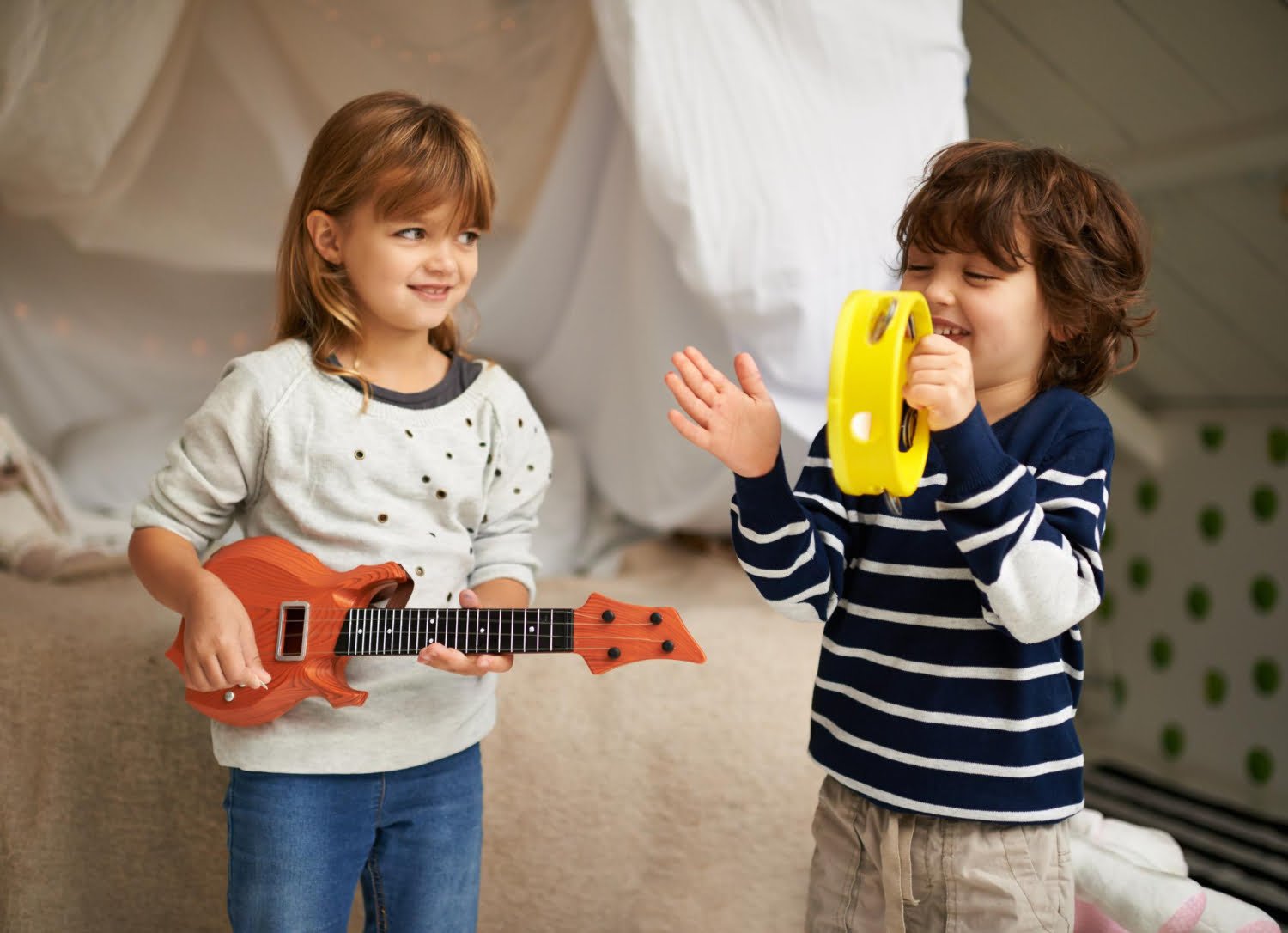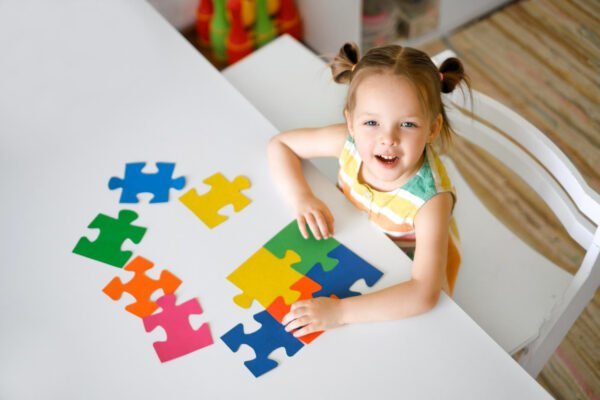10 Surprising Signs Your Toddler Is Not Autistic You Need to Know!
Imagine yourself in a lively playground filled with the joy and excitement of kids playing. As you watch your child play with other children, you’ll feel a deep sense of joy and connection. You might also feel a tinge of concern, wondering if their behavior is normal or if you should be worried. It’s perfectly common for families to have these thoughts. However, the good news is there are clear signs your toddler is not autistic. Let’s explore these indicators, which will give you peace of mind and a deeper appreciation for your child’s unique growth.
1. Making Eye Contact
- Engaging Through Gaze
One of the best signs your toddler is not autistic is their ability to maintain consistent eye contact. This basic social skill shows the child is occupied and engaged in social interactions. As per The Journal of Pediatric Health, approximately 75% of children who keep their eyes open don’t exhibit signs of autism.
Note when your child is looking at you when you’re talking or playing. For example, when they are able to follow your gaze to a plaything or an object, it indicates that they are developing social awareness. This simple but powerful act suggests that your child is interacting with you cognitively and emotionally.
- Why Eye Contact Matters
Eye contact is a crucial element of bonding and communication. It’s one of the primary ways toddlers and infants connect with the world. When your child looks into your eyes, they might be seeking assurance, understanding, or connection. This behavior can lay the foundation for social skills later on, including the ability to interpret facial expressions and emotional cues.

2. Responding to Their Name
- Recognition and Reaction
Another sign that your child isn’t autistic is their reaction to your name when you ask them. Recent research from the American Academy of Pediatrics indicates that toddlers who respond to names by tilting their head, looking towards you or waving and smiling are at a lower risk of being diagnosed as autistic.
Imagine this: you call your child in the other room, and they glow excitedly upon hearing their name. This consistent response is a comforting indication of their normal auditory and social processing. If your child responds this way frequently, it’s a reassuring sign of their development.
- The Importance of Name Response
The way they respond to their name indicates that your child is able to comprehend and process auditory information. This ability is vital for the development of language as well as social interactions. It also means that your child can differentiate their name from the sounds of others, which is an essential element of communication in the early years.
3. Age-Appropriate Language Skills
- Babbling and Words
The development of language is an important step in a child’s development. In most cases, toddlers begin talking and uttering simple phrases when they turn one. At the age of two, they will be able to construct small, two-to-three-word sentences such as “more juice” or “big truck.” In actual fact, the CDC estimates that around 90 per cent of children who have reached these milestones in language don’t have symptoms of autism.
Monitoring your toddler’s growing language skills can help alleviate your worries. For example, If they begin to utter phrases such as “da-da” or “ma-ma” before moving on to more simple sentences, it’s a great indication that their development in language is on the right track.
- Milestones in Language Development
Language skills for toddlers tend to grow rapidly. From mimicking sounds to creating coherent sentences, These milestones are vital. Around 18 months, the majority of toddlers can speak about ten words. When they reach the age of 2, their language grows substantially, and they begin connecting words. These milestones can be reassuring signs your toddler is not autistic.

4. Engaging in Pretend Play
- Creative Activities
Playing pretend is an amazing part of childhood that demonstrates the toddler’s intellectual flexibility and creative thinking. It doesn’t matter if they’re playing as superheroes preparing the perfect tea party or preparing food in an imaginary kitchen; these kinds of activities provide signs that your toddler is not autistic. Studies show that more than 90% of children who participate in creative play exhibit normal social abilities.
- Observing Imaginative Play
If you notice your child playing, pretend that the stick is an enchanting wand or they’re going on a pirate expedition. Be aware. These play-based activities for children are great indicators of development that are normal, showing how your child is playing with their imagination and experimenting with social interactions.
- Why Pretend Play is Critical
Playing pretend assists toddlers in developing social and cognitive abilities. It helps them think with their minds and comprehend the different roles and how they play with others. This type of game also assists children in learning about their surroundings and boosts their ability to solve problems.
5. Showing Empathy
- Emotional Development
Empathy is a vital social ability that begins to develop in the first years of the child’s life. If your toddler displays behaviours like soothing an ailing friend or playing with toys, they are solid signs your toddler is not autistic. Research suggests that 80 per cent of children who are not autistic show an impressive amount of empathy before the age of three.
Imagine a time when your child notices a child’s anger and then offers them a gift or even a hug. The ability to detect and react to other’s feelings is an indicator of normal emotional and social development.
- The Role of Empathy in Socialization
Empathy is a key factor in helping children understand and experience the emotions of others. Children who show empathy are more likely to form healthy social connections. They develop the ability to care for others, be generous, and play with others. These skills are crucial for forming important connections throughout their life.
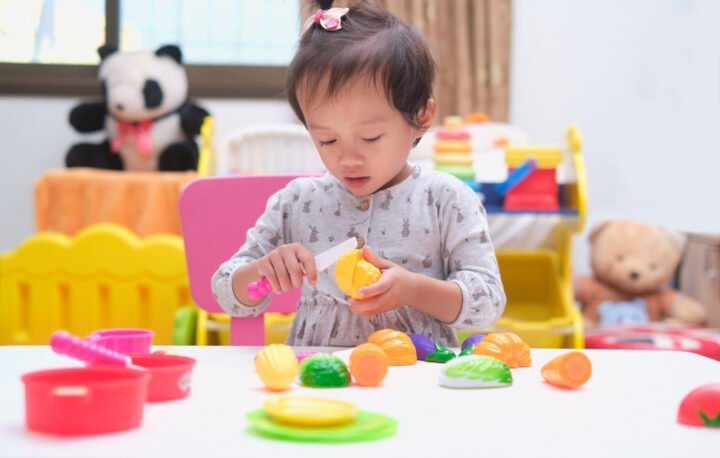
6. Varied Play Behaviors
- Exploring Different Toys
A variety of play-related behaviors often reflect the healthy development of a child. Encouraging your child to play with a variety of toys, engage in diverse activities, and demonstrate the ability to think creatively can be beneficial. On the other hand, autistic toddlers tend to display repetitive behavior and have limited playing interests.
- Examples of Diverse Play
Be awed by your child as they construct new structures with blocks or race toy cars as well as dress dolls. These different activities demonstrate the ability to solve problems, curiosity and mental flexibility. These are the most important signs your toddler is not autistic.
- Benefits of Diverse Play
Engaging in various forms of games helps toddlers learn an array of abilities. Playing with blocks improves fine motor skills as well as spatial awareness. Racing cars improve coordination and speed. Dressing up dolls can stimulate imagination and empathy. Playing with dolls is a great way to aid in the overall development of social and cognitive skills.
7. Meeting Physical Milestones
- Gross and Fine Motor Skills
Monitoring physical milestones gives you insight into the growth of your toddler. The most important milestones are standing up, rolling over or crawling, and walking. Learning to master fine motor skills, for example, using utensils or drawing shapes suggests normal development. As per the National Institute of Child Health and Human Development, 95 per cent of children who meet these milestones don’t have autism.
- Practical Examples of Physical Progress
Being able to watch your child confidently navigate the playground, whether climbing, running, or using hands to manipulate or draw small objects, can offer a lot of confidence. These activities demonstrate their motor development and are crucial signs your toddler is not autistic.
- Importance of Motor Skills
Gross motor skills involve big muscles that move, like running, walking, or jumping. Fine motor skills are smaller movements, like gripping objects, dra, wings and using tools. Both of these abilities are essential for children’s independence and interactions with their surroundings. The achievement of these standards indicates an overall healthy development in both cognitive and physical.
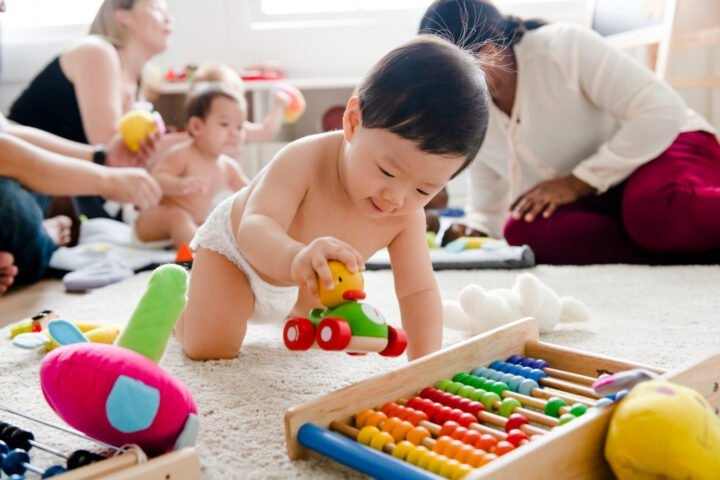
8. Normal Sensory Responses
- Reacting to Stimuli
Normal sensory processing is a further indication that your child is not autistic. Most toddlers who are developing exhibit predictable reactions to different sensory inputs. They may dance to their favourite tune, search for new textures or textures, or follow the movement of objects. Extreme sensory sensitivities may be an indication of autism. However,. However, normal toddlers do not typically exhibit the same intense reactions.
- Everyday Sensory Engagement
For instance, if your child shows enthusiasm and claps to music or is curious about new materials, these normal sensorimotor responses are a good indicator of their progress. Assuring that they have an appropriate sensory experience will help them grow.
- Sensory Processing and Development
Sensory processing is the process by which your brain processes information received from the senses. Children who are developing normally explore different kinds of sounds, textures and lights with interest but without causing distress. Engaging their senses with playing, including music or tactile activities, aids them in understanding and connecting with the world around them.
9. Interest in Their Surroundings
- Curiosity and Exploration
A curious toddler is usually an averagely developing child. If your child takes an interest in their surroundings or asks questions, as well as interacts with objects and people, these are clear signs that your toddler is not autistic. Research has shown the majority of curious toddlers aren’t autistic.
- Practical Curiosity
Watch your toddler’s interactions with everyday activities. Maybe they are mimicking your cooking style, discovering new areas in your home or even showing interest in the ways things work. This is a crucial aspect of their development as a social and cognitive child, which is a sign of their development.
- Encouraging Exploration
Inviting your child to discover their surroundings can help stimulate their development of cognitive abilities. Make sure they have an environment that is safe and enjoyable to explore. Inspire them with inquiries and explanations, creating curiosity and discovery that will help them throughout their life.
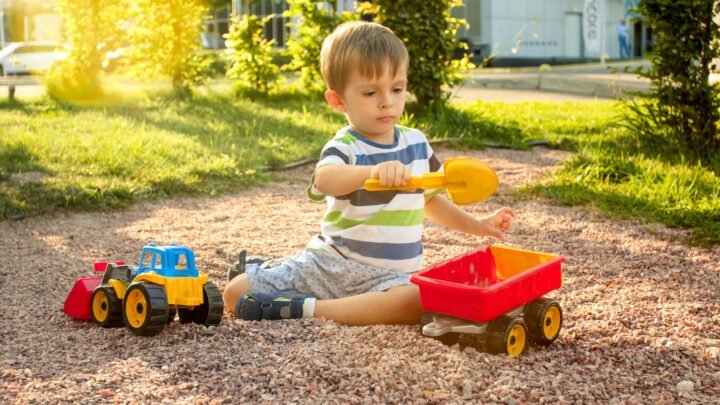
10. Following Visual and Auditory Cues
- Recognizing and Reacting
The ability of toddlers to interpret audio and visual signals is an important indicator of normal development. If your child can identify and react to familiar sounds or faces, this indicates a healthy sense of as well as cognitive growth. Research suggests that 90 per cent of toddlers who consistently respond to auditory and visual clues show normal development.
- Real-life Examples
Imagine saying a word to your child and watching them smile at you. Smile. You are watching them follow a toy using their eyes. These behaviours show that they’re processing information from sensory input correctly, which indicates that they are developing normally.
- Importance of Sensory Integration
Sensory integration describes how the brain blends sensory information from various senses to create a coherent experience. Toddlers who are able to recognize both auditory and visual signals are proving that they are able to integrate and react to complicated sensory information, which is an essential ability for interaction and communication.
Conclusion
Knowing the signs your toddler is not autistic can assure you. From eye contact to showing empathy and pretend play to reaching physical requirements, these behaviours are typical of developmental progress. Watching your toddler’s development and celebrating the milestones they reach can help you realize that each child is unique and growing at their own pace.
Be aware that early recognition and encouragement are crucial. If you have concerns regarding the development of your child, seeking out an expert in paediatrics will provide the right advice from an expert. The health and well-being of your child are essential, and early intervention, when needed, can make a significant impact.
Enjoy your toddler’s development and celebrate their unique developmental journey. Knowing these signs your toddler is not autistic will allow you to support and foster their development to ensure that they can reach their full potential.
Recommended Products
Baby Einstein
Why It’s Great: Baby Einstein toys are a wonderful way to spark your child’s curiosity and love for learning. These interactive toys incorporate music, lights, and textures to engage your toddler’s senses. They are designed to encourage exploration and discovery, making them perfect for cognitive development.
LeapFrog Learning Toys
Why It’s Great: LeapFrog toys are all about making learning fun. They offer interactive activities that help boost early literacy and numeracy skills. From educational games to engaging storybooks, these toys are great for developing language and cognitive skills in an enjoyable and age-appropriate way.
Your Baby’s First Word Will Be Dada
Why It’s Great: This charming book by Jimmy Fallon is perfect for encouraging your little one’s first words. Its simple and repetitive structure makes it easy for toddlers to follow. Reading this book together not only helps with language development but also creates a special bonding time.
Melissa & Doug Pretend Play
Why It’s Great: Melissa & Doug’s pretend play sets are fantastic for sparking imagination and creativity. Whether it’s a pretend kitchen or a dress-up set, these toys let your child explore different roles and scenarios, helping to develop their social skills and empathy.
Feelings in a FlashCards
Why It’s Great: These flashcards are an excellent tool for teaching your toddler about emotions. By helping your child recognize and name different feelings, these cards aid in emotional development. Understanding and expressing emotions is crucial for building healthy relationships.
Mega Bloks
Why It’s Great: Mega Bloks are perfect for little builders. These large, colorful blocks are easy for small hands to grip and stack, which helps develop fine motor skills and coordination. Building with blocks also encourages creativity and problem-solving abilities.
Fisher-Price
Why It’s Great: Fisher-Price toys have been loved by generations for a reason—they’re awesome! From sensory toys to educational games, Fisher-Price offers a wide range of products for every stage of your child’s development. They’re durable, safe, and just plain fun.
Little Tikes
Why It’s Great: Little Tikes toys are ideal for promoting physical activity. Whether it’s a slide, a ride-on toy, or a mini playground, these toys encourage kids to get moving. Physical activity is vital for developing gross motor skills, balance, and overall health.
FAQs
How can making eye contact be a sign your toddler is not autistic?
Why is responding to their name a crucial sign your toddler is not autistic?
How do age-appropriate language skills indicate that your toddler is not autistic?
What role does pretend play have in showing that your toddler is not autistic?
Why are varied play behaviors important signs your toddler is not autistic?
Related Posts


